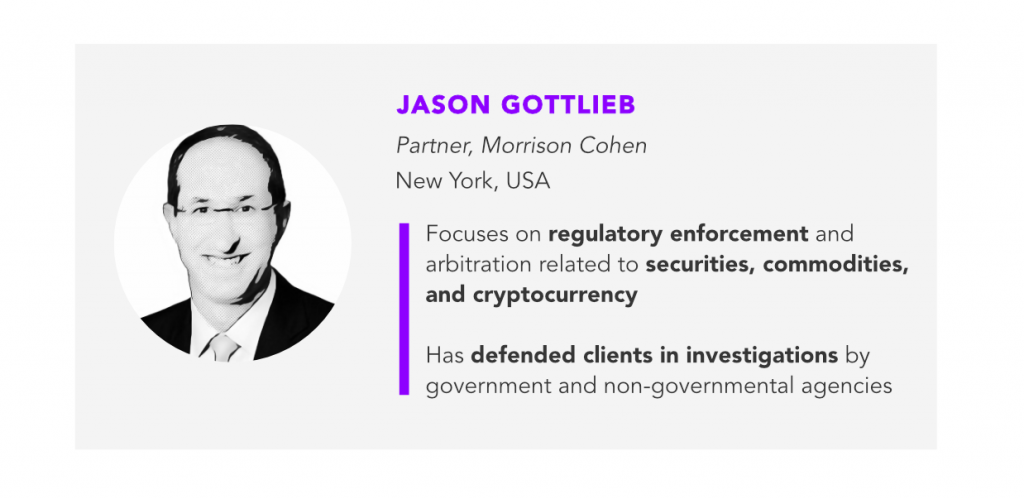Initial coin offerings (ICOs), initial exchange offerings (IEOs), and security token offerings (STOs) are a worldwide phenomenon. After all, a coin or token that has no physical existence apart from some computer code can be easily sent around the world to anyone with an internet connection with a few clicks of a keyboard.

While the promise of worldwide currency movement has obvious advantages, it also presents new challenges for regulators, who are left chasing bad actors, and enforcing standards of investor protection, across borders, where their jurisdiction may be somewhat limited.
The United States Securities and Exchange Commission, however, does not believe that is limited by borders. It has explicitly claimed to have worldwide jurisdiction over violations of United States securities laws, and has exercised that authority in recent actions against allegedly wrongful ICOs conducted abroad, in which United States persons purchased coins from non-United States organizations.
Is the SEC the world’s securities police? The legal answer is unclear, but so far, the most significant judicial decision on the topic suggests the answer is yes.
First, some background. In 2010, the United States Supreme Court issued its landmark ruling in Morrison v. National Australia Bank, in which it stated that Congress presumes that its lawmaking power presumptively extends only to the United States, and so for any laws to have extraterritorial effect, they must explicitly recite that they are meant to be applied extraterritorially.
In Morrison, the Supreme Court held that the main U.S. securities laws – the Securities Act of 1933 and the Securities Exchange Act of 1934 – did not allow for a private legal action against a foreign entity for a foreign security traded on a foreign exchange, even if that transaction could be said to have “effects” here in the United States. So if a French citizen wanted to sue a French company for a misrepresentation relating to the sale in France of a security in that French company, she could not do so in the United States.
However, two weeks after Morrison was issued, the U.S. Congress passed (and President Obama signed into law) the Dodd-Frank act, which tightened financial regulation in the wake of the 2008 financial crisis. Dodd-Frank contains a section (Section 909P) that seems to suggest that the SEC does indeed have extraterritorial authority to pursue securities wrongdoers.
Thus, while private actions were significantly curtailed by Morrison, the SEC has claimed since 2010 that it still has the power to be the world’s securities police. This attitude is obviously constrained by resources and practicalities, and the SEC has not pursued French securities issuers for misrepresentations related to French securities sold in France to the French. However, in several recent enforcement actions, the SEC has stretched to reach extraterritorial offerings.
For years, courts noted the tension between Morrison and Section 909P without deciding whether one precluded the other. The first court to reach the issue formally – a federal district court in Utah in the case SEC v. Traffic Monsoon – ruled for the SEC. Traffic Monsoon appealed that decision, but this year, the Court of Appeals for the Tenth Circuit (one of the 13 federal appellate courts right under the Supreme Court) affirmed the lower court’s decision, reinforcing that the SEC’s power to enforce U.S. securities laws extended to foreign transactions.
The decision has not been tested in the Supreme Court, and it is possible that the Supreme Court will decide differently. But until that time, coin or token issuers around the world need to be highly cognizant of United States securities laws, and the SEC’s expansive view of its own jurisdiction.
If an issuer is selling coins or tokens into the United States – even if such coins constitute a relatively small percentage of the worldwide offering – the SEC will take notice. If the offering does not comply with U.S. securities laws, it is at great risk of enforcement action by the SEC. For example, the SEC has filed a civil lawsuit against Kik Interactive Inc. seeking rescission of its entire US$100 million offering, on the basis that Kik offered and sold its tokens to Americans — even though Kik claims that fewer than one-third of its token purchasers were in the U.S.
The SEC’s enforcement actions against foreign entities and people have even included a preliminary injunction freezing all assets of the coin offeror, without even limiting the freeze to the assets raised in the offering. Such an injunction can easily end a business in a heartbeat.
Because of the SEC’s expansive views of its own authority, and its willingness to act when American purchasers are involved in any way, token issuers worldwide would be wise to consult with a U.S. securities or enforcement lawyer before conducting any offering. Under the current state of the law, offerors must either comply with U.S. law, or take extensive measures to “bubble off” the United States so as not to sell, or even offer to sell, any coins or tokens to people in the United States.




